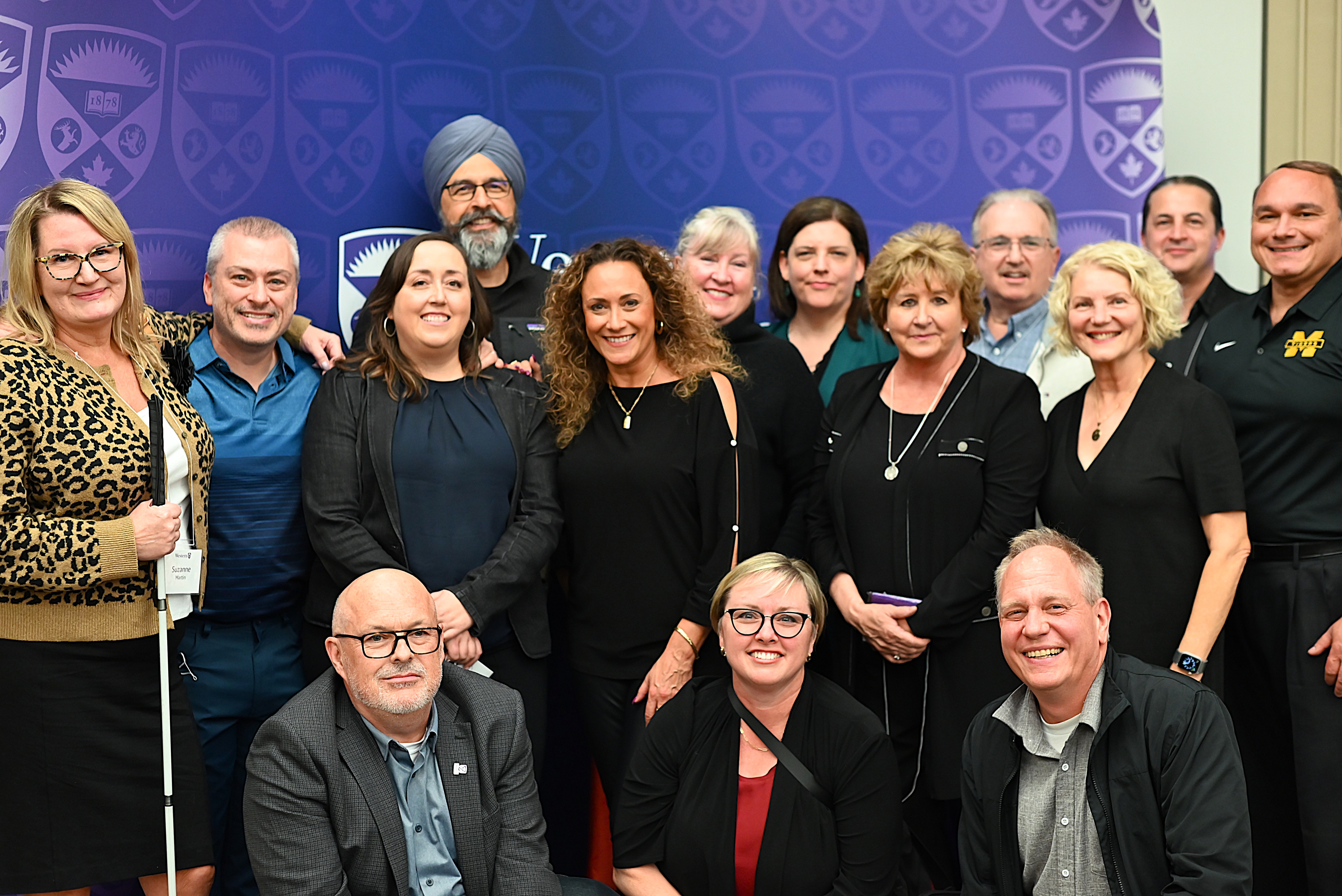
High school principal and Western Education alum Dr. Philip Capobianco.

High school principal and Western Education alum Dr. Philip Capobianco.
As Dr. Philip Capobianco enters his 30th year of teaching, he is optimistic about safeguarding students' mental health in Catholic schools.
“It has been a calling and a vocation… I always wanted to be a teacher,” he said of his teaching career.
“I would say it is a far-reaching profession in the world.”
Capobianco grew up in Ontario’s publicly funded Catholic education system, where he recalls constantly being challenged to build community within his neighbourhood and surrounding area.
Now serving as a high school principal in the Ottawa Catholic School Board, Capobianco has achieved what any teacher would be proud of. But in 2021, the veteran educator reached even greater heights as he sought to give back to a system that had already given him so much.
More than 20 years after he obtained his Master of Education, Capobianco returned to the post-secondary world in pursuit of a Doctor of Education (EdD) in the field of Educational Leadership from Western University.
He was admitted into the program during the height of the COVID-19 pandemic, an event that left him feeling alarmed about the lack of support in place for the mental health of learners.
“The motivator for entering the program was witnessing the global pandemic's chaos in schools, students, and families. I wanted to generate interventionist strategies that we could use to repair the damage done to children and youth,” Capobianco said.

Dr. Philip Capobianco (furthest to the right) is joined by classmates in his Educational Leadership cohort.
A fully online, three-year graduate program that allows students to learn while keeping up with their careers, Capobianco soon found himself surrounded by like-minded individuals from accomplished backgrounds.
Capobianco credits professors and instructors like Dr. Katina Pollock, Dr. Dianne Yee, Dr. Erin Keith and Dr. Scott Lowrey for fostering a supportive, informative, and inspiring learning space.
“With a professional degree, we employ tremendous expertise during a reflective learning process. With my cohort across the country and worldwide, I learned much about other schools, systems, and challenges,” Capobianco said.
“Youth mental health struggles are very much a global issue.”
A hallmark of the EdD program is the Dissertation in Practice (DiP), a final project that tasks EdD candidates with creating a scholarly, applied organizational improvement plan in response to a problem of practice in the student’s workplace.
In August 2024, Capobianco published his own DiP, “Improving Teacher Preparedness and Capacities: Narrowing the Gap to Support Youth Mental Health in a Catholic High School.”
As its title suggests, Capobianco’s DiP shares how to best prepare teachers and improve their abilities to provide youth mental health support in Catholic high schools.
In his research, Capobianco found that a one-on-one intervention system best serves these supports.
“The school principal and the administration must be at the heart of any transformative change. In my problem-solving, I discovered that school administration must be central to organizational improvement. He added that we must practice activism, leadership, and wellness to staff and students,” he added.
Capobianco recommends developing professional learning communities in high schools. School administration would chair these groups, exploring best practices, research, and data to ensure teachers are well-equipped to address mental health issues.
These professional learning communities would collaborate with community partners, including system leaders, consultants, Catholic school councils, and School Mental Health Ontario.
Capobianco’s plan also employs the Kotter Change Model, a structured approach to organizational change developed by Harvard Business School professor Dr. John Kotter.
Capobianco describes in his DiP that the Kotter model consists of “eight sequential steps to manage and implement transformative initiatives.”
“These steps include creating urgency, forming a guiding coalition, developing a vision and strategy, communicating the change vision, empowering broad-based action, generating short-term wins, consolidating gains and producing more change, and anchoring new approaches in the organization's culture” Capobianco writes in his dissertation.
According to the high school principal, implementing such initiatives in Catholic schools would create a robust foundation for supporting student mental health and wellness.
“I have surveyed my teaching staff, and many have told me that they would appreciate further training and support in youth mental health,” Capobianco added.
“We must approach youth mental health from an area of strength, equipped with the tools and strategies to help students manage, achieve, and succeed. What we do today affects their lives in the future.”
Capobianco’s work is unique because it is framed within the context of Ontario’s Catholic education system. During the early phases of his research, Capobianco found that most existing research examined it from a secular rather than a Catholic perspective.
“There was a research gap in the Catholic school system. I hope that moving forward, we can fill that gap,” Capobianco said.
“Our Catholic school system is unique and requires us to look at strategies that mesh within the dynamics of a faith-inspired system.”
Along with more research on the topic, Capobianco also wants to see Catholic schools across Canada adopt what he refers to as an interventionist caring adult model.
This model draws on a transformative leadership style, where the leader's primary role is to serve others. The model is strengthened by a focus on transparency and Catholic Social Teaching, which ensures students are served in a caring environment and feel comfortable sharing mental health issues.
“Every educational leader must build resilient relationships with their community so that learners can come forward confidently when struggles are encountered,” Capobianco said.
“Addressing these issues safely with teachers who are better trained is something that I champion.”